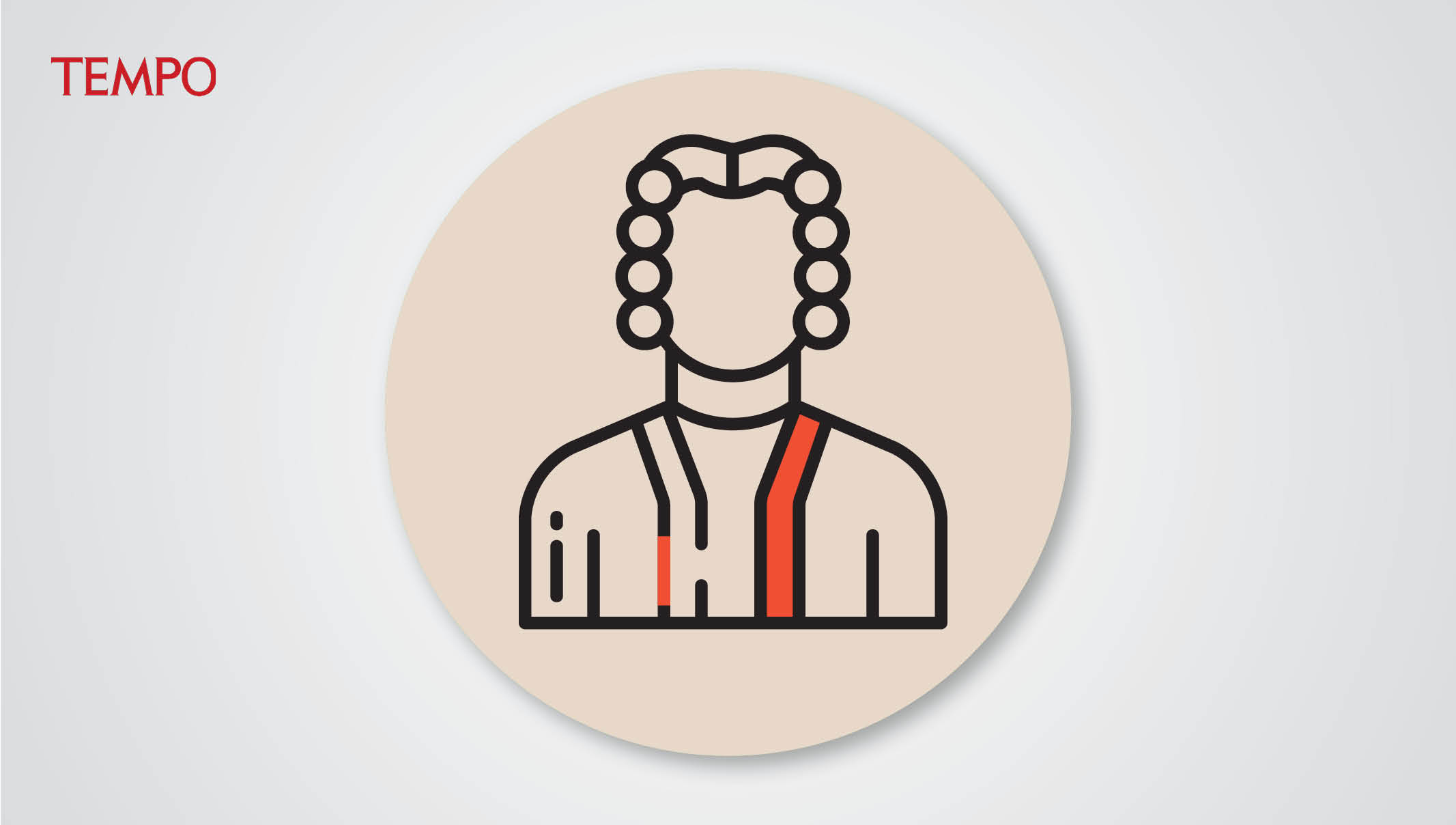Transparency in the Selection of Supreme Court Justices
Monday, September 9, 2024
The DPR rejected all candidates for Supreme Court and ad hoc human rights justices put forward by the Judicial Commission. There needs to be transparency in the selection process.
arsip tempo : 174720633629.

THE decision by House of Representatives’ (DPR) Commission III, which presides over legal matters, to reject all the candidates for Supreme Court justices and ad hoc human rights judges put forward by the Judicial Commission is very strange. The House is simply looking for excuses to eliminate candidates who are not in line with their political interests.
The excuse given by the DPR for rejecting prospective Supreme Court justices, namely that the two prospective justices for the taxation chamber must have 20 years’ experience as taxation judges, is clearly a contrivance. This provision was used to reject all 12 candidates, comprising nine Supreme Court justices and three ad hoc human rights judges.
The requirement for 20 years’ experience is included in article 7 of Law No. 3/2009 on the Supreme Court. But it has not been possible for any candidates so far to meet this requirement because the taxation court was only established in 2002. Moreover, taxation judges are usually senior officials from the Finance Ministry. If they have to wait for 20 years before becoming taxation judges, candidates will already be at retirement age when they are nominated.
In the matter of experience for Supreme Court justices, the Law Commission of the DPR has not been consistent. In the past, they have accepted prospective Supreme Court justices who did not meet the requirement for career experience. There are four justices in the military chamber that were still approved by the DPR despite having been judges for less than 20 years.
The involvement of the DPR in the selection of Supreme Court justices is unavoidable. Even in the United States, Supreme Court justices are nominated by the president and must also be confirmed by the Senate. However, the involvement of political institutions, such as the DPR in Indonesia, or the president and the Senate in the United States, opens the door to political intervention in judicial authority. The decisions made by the DPR regarding the approval of Supreme Court justices cannot be separated from their political motives to select candidates who will pass rulings in line with their political interests.
It is therefore understandable that many are suspicious with the latest rejection. Throughout the Joko Widodo administration, the DPR and judicial institutions have played the most prominent roles in the legalization of autocratic practices—passing laws without discussion or public participation in order to serve the interests of the elite. The Supreme Court, for example, made it possible for Jokowi’s youngest son, Kaesang Pangarep, to contest in a regional head election by changing the minimum age requirement.
The process of selecting Supreme Court justices at the DPR has been conducted behind closed doors. The rejection of candidates proposed by the Judicial Commission has never been accompanied by clear arguments or indications for the reason, and is at odds with previous decisions made by the DPR. This secretive selection process only results in Supreme Court justices who are not progressive and who are corrupt.
The mechanism for selecting these justices must be changed. The only way forward is to change the selection process so that it is open and transparent. The Law Commission at the DPR must be obliged to provide public explanations of the selection process and their reasons for rejecting or approving prospective Supreme Court justices proposed by the Judicial Commission.











